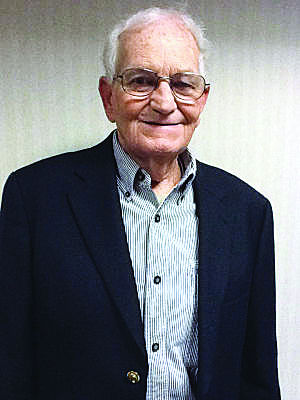Another major “sub-disease” of alcohol abuse and alcoholism (as well as the abuse and dependency on substances other than alcohol) among children is the Fetal Alcohol Syndrome (FAS), a diagnosed condition which in recent years has been changed to Fetal Alcohol Spectrum Disorders (FASDs).
These are the disorders that result from a woman consuming alcohol during pregnancy.
The concept of the Fetal Alcohol Syndrome was conceived and developed by Doctors David W. Smith and Kenneth L. Jones in 1973.
There studies of 55,000 pregnancies in which 32 percent of the resultant births exhibited craniofacial, limb and cardiovascular defects associated with prenatal onset growth deficiency and development delay. Theirs was the first scientific study of the condition, and the first reported association between maternal drinking and child development.
Society has known of the detriment of alcohol consumption by the pregnant woman for millennia however.
The first know record of the warning not to drink alcohol while pregnant can be found in old testament of the Christian Bible, in the Book of Judges: “An angel appeared to Sampson’s Mother, saying, “Behold now, thou art barren…but thou shalt conceive…now therefore beware, I pray thee, and drink not wine nor strong drink…” Social reformist Henry Fielding wrote in 1751, “What must become an infant who is conceived in Gin? With the poisonous distillations of which it is nourished, both in the womb and at the breast.”
Also during this period, known as the “Temperance Movement,” temperance leader Ellen G. White wrote, “As a result of parental intemperance children often lack physical strength and mental and moral power…” In 1857, a Doctor Forel of France did a study of children born 9 months after a wine festival, noting an increase in the number of “idiots” born (Idiot was a term once used for persons with a developmental disorder). Dr. Forel stated, “Conception during intoxication produced idiot children.”
We now know the condition of the Fetal Alcohol Spectrum Disorders (FASDs) not to be one disorder but a number of disorders associated in a causative factor. The five major physical symptoms associated with the syndrome are a baby of shortened length, low birth weight, slow in growth and development, cardiovascular defects, and craniofacial abnormalities, and a smaller head and brain size. We have since discovered that various problems in learning and memory also are noted early in life, sometimes in late childhood; due to physio-neurological deficits of brain development.
Prenatal alcohol consumption creates a spectrum of developmental difficulties impacting neurological and development resulting problematic expressed cognitive abilities and functioning.
In my work with Alcoholics and their families over the years I witnessed first-hand the results of the havoc and destructive nature of the disease. Take the case of Jimmy R. who began counseling with me in his late 20’s having been diagnosed with a Depressive Disorder. Both of Jimmy’s parents were alcoholic, although his mother and father separated when he was a baby. He was the middle child of three children. He and his siblings left home at age 15, and were completely on their own.
His older brother became an alcoholic, and his younger sister an addict to alcohol and other drugs. The parents were non-attentive to the children, never giving them affection. Jimmy and his siblings roamed around without supervision from early childhood on. Jimmy did not do well in school, nor did he socialize with other children. The children were at one point taken away from the mother and placed with foster parents for a few years, then eventually reunited with the mother after she had extensive treatment for her alcoholism.
As an FAS child, Jimmy had one arm shorter than the other, and was taunted and teased by other children. He spent almost all of his time alone, isolating from others. He taught himself to play the guitar, which was the outlet for his stress. He often had a “dead-pan” stare, talked very little, and it took a long time to develop trust with him. Jimmy was previously diagnosed with Attention Deficit Disorder (ADD). Jimmy stayed away from alcohol until his 20s, relating making a vow to himself he would never drink because of what he had experienced as a child.
Although detesting alcohol, he began drinking and using marijuana, mainly to help him socialize with others; quitting in his mid-twenties as he related the alcohol made him very physically ill and he did not like the feeling of being “stoned” on the marijuana. Despite his obvious disabilities, Jimmy married a childhood sweetheart, the only relationship he ever had, and they had two children. He related that he had previous counseling experiences, but no one had ever talked to him about his parent’s alcohol history or his experiences as a child in an alcoholic family. He decided to come to counseling because he wanted to be able to raise his children without his encumbered problems, and insure his children were raised in a “normal environment.”
In counseling it was extremely difficult for Jimmy to “get in touch” with his feelings, nor share with others in group counseling; especially concerning his childhood experiences with his parents and siblings. Jimmy was a Child of Alcoholism who decided to get help and successfully applied himself to recovery. He went on to own his own business and really enjoyed his time with his family. He was one of the fortunate ones, as many COAs live with their pain and suffering all their life.
Unlike years past, there are many now who speak for the Child of Alcoholism. They are available among the Licensed/Certified Chemical Dependency Counselors in your area. If you desire more information on COA and what you may do to help in their recovery, contact The National Association of Adult Children of Alcoholics (NAACA), ALANON and ALATEEN, or your local Mental Health/Substance Abuse Authority. The children need not suffer. Until next time, stay healthy my friends!




